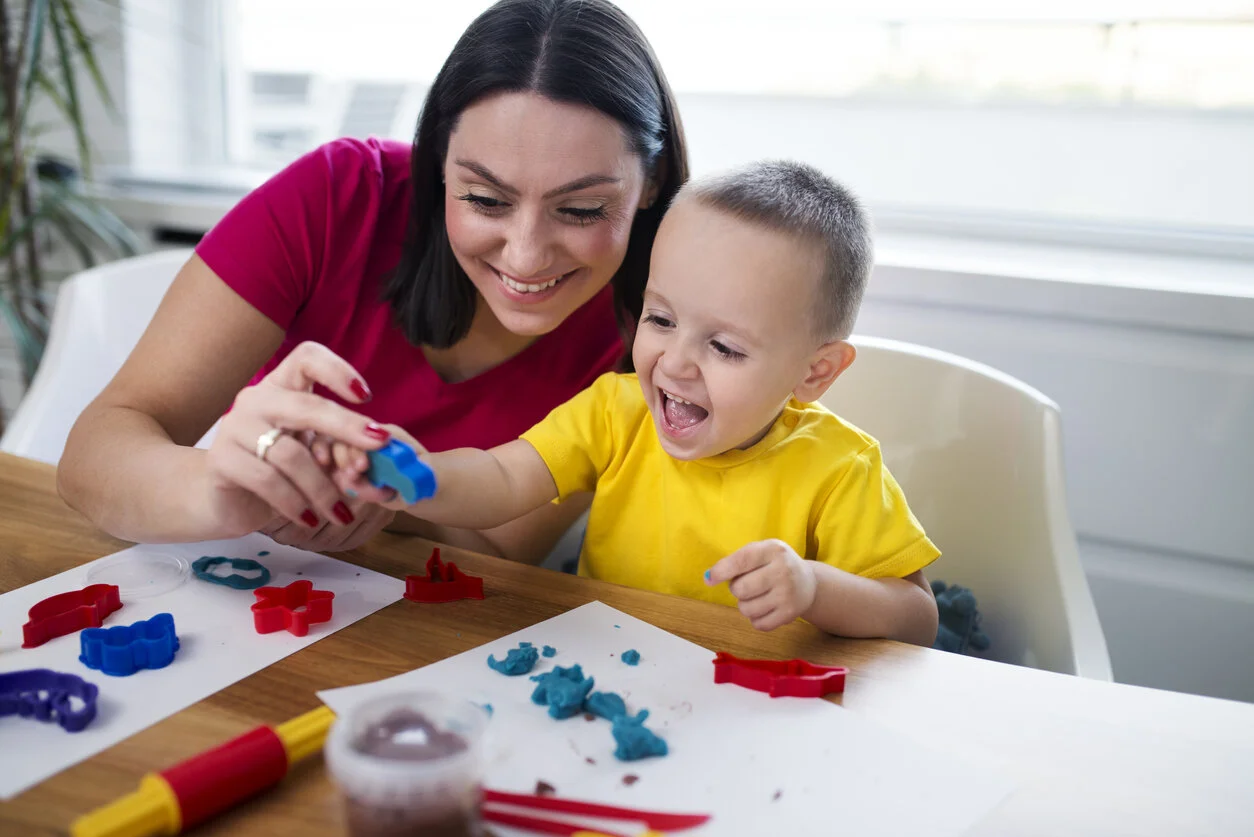
Step into the world where every touch, every splash, and every little mess is an adventure awaiting to be explored. Picture this; messy fingers painting vibrant stories, water tables filled with floating wonders, nature walks that reveal endless treasures, and games that spark curiosity.
These are not simple activities; these are sensory play – a journey of discovery led by curiosity that tickles the senses and sets the stage for a world filled with wonder and imagination.
In this blog, we will highlight sensory play, its importance, and types of sensory play. So, grab a seat, and let’s explore the magic that awaits in the world of sensory games that are more than just playtime accessories for our little explorers!
The Importance of Sensory Play
Sensory play involves activities that stimulate the five senses—sight, hearing, touch, taste, and smell. These activities provide children with rich, hands-on experiences that go beyond traditional learning methods. Researchers and educators alike emphasize the crucial role sensory play plays in a child’s cognitive, emotional, social, and physical development.
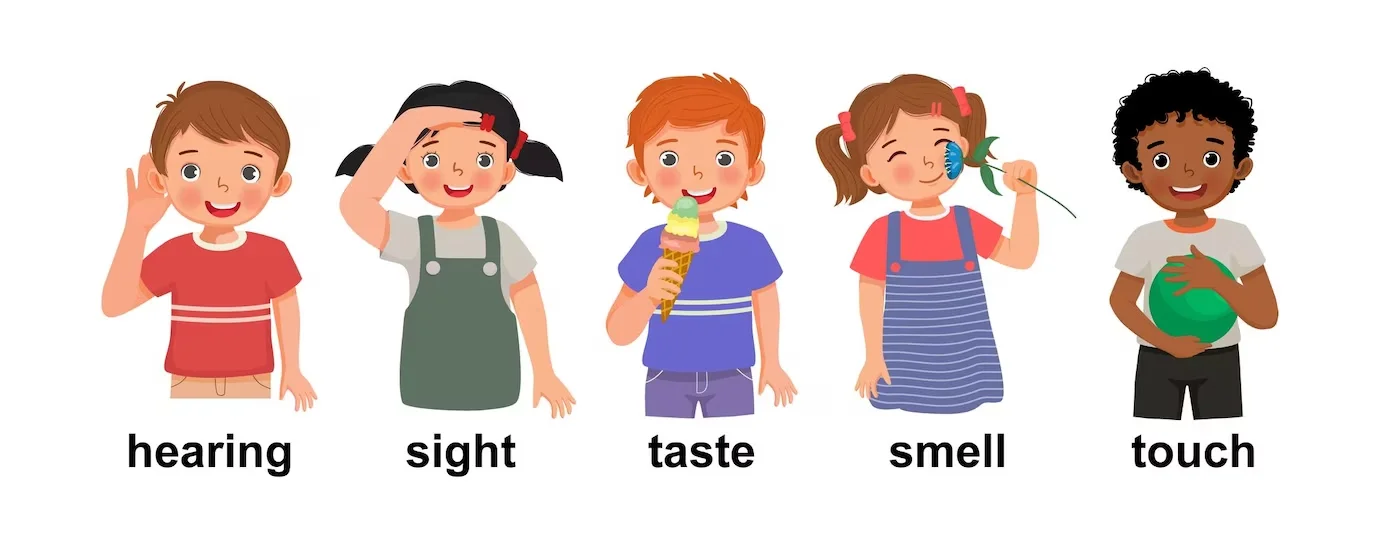
Cognitive Development: Sensory play enhances cognitive skills by encouraging children to explore and make sense of the world around them. Activities like finger painting, water play, and sandcastle building enhance sensory skills. As kids manipulate different materials, they develop spatial awareness, hand-eye coordination, and fine motor skills, laying a foundation for future academic success.
- Emotional Development: Sensory play provides an outlet for children to express and regulate their emotions. Engaging in sensory activities helps them build confidence, develop a positive self-image, and learn to manage stress or anxiety. The tactile nature of sensory play also promotes relaxation, creating a calming effect that can be particularly beneficial for children with sensory processing issues.
- Social Development: Many sensory play activities are designed for group participation, fostering social skills and collaboration. Sharing materials, taking turns, and communicating with peers during sensory play contribute to the development of essential social skills. Group activities also create a sense of community, encouraging children to work together and learn from one another.
- Physical Development: Sensory games refine motor skills and thus play a critical role in physical development. Activities like molding playdough or exploring textures in sensory bins enhance fine and gross motor skills, improving hand-eye coordination and grip strength. Engaging with different sensory stimuli fosters body awareness, spatial orientation, and balance, contributing to holistic physical development in early childhood.
You must be curious about the sensory games that children can play. We have already the best sensory play games list that you can use for your children:
1. Messy Play
Playdough
Playdough is a soft, pliable, and moldable substance that is often used as a creative and sensory play material for children. It is typically made from a combination of flour, salt, water, and food coloring. Some recipes may include additional ingredients like cream of tartar or oil to improve the texture and longevity of the Playdough. |
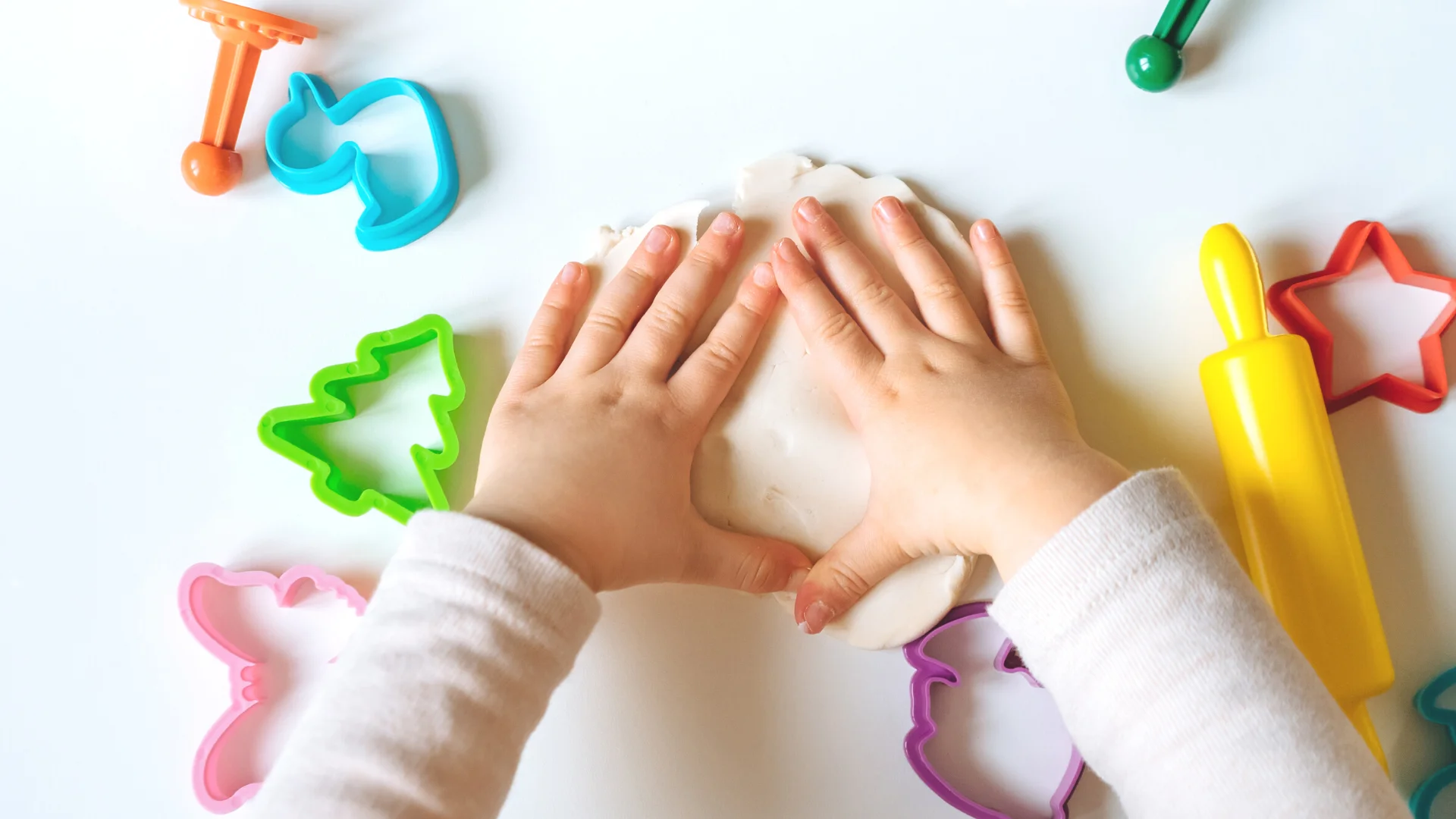
Benefits of Playdough
| Motor Skills | Creativity and Imagination | Color Recognition | Relaxation and Stress-free lifestyle | Tactile Stimulation |
|---|
Oobleck
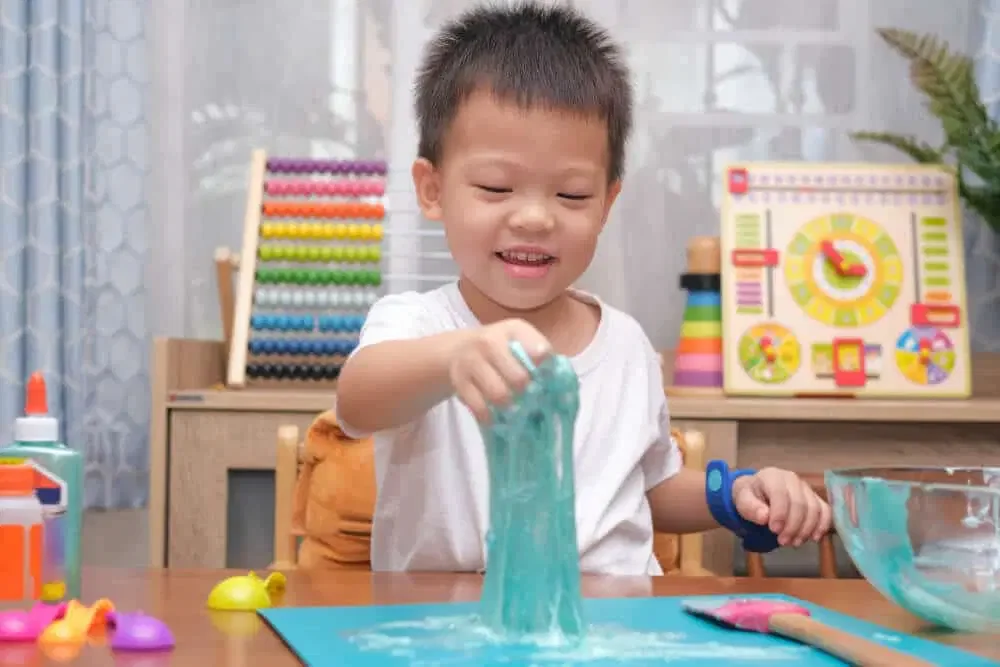
Oobleck is a non-Newtonian fluid that exhibits properties of both liquids and solids. Oobleck is made by mixing cornstarch with water in a specific ratio. The resulting mixture has a unique texture—it flows like a liquid when poured but becomes solid when pressure is applied. This makes it a fascinating and engaging material for sensory play with kids. |
Benefits of Oobleck
| Motor Skills | Messy and Safe play | Color Recognition | Relaxation and Stress-free lifestyle | Scientific Exploration |
|---|
2. Water Play
Splashing in Puddles
Children have been enjoying this classic outdoor activity for eons. This can be a delightful sensory play experience for kids, especially after rainfall. This activity involves jumping, stomping, and playing in puddles created by rainwater. While it may seem like just a fun way for kids to get wet and dirty, it actually offers several sensory benefits. |
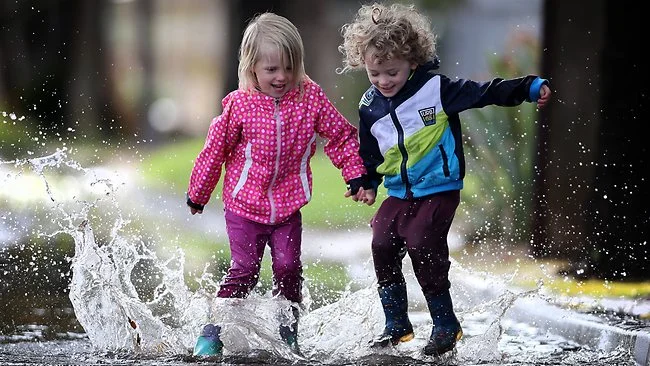
Benefits of Splashing in Puddles
| Motor Skills | Nature Exploration | Body Motion | Relaxation | Balance and Coordination |
|---|
Exploring Different Water Temperatures
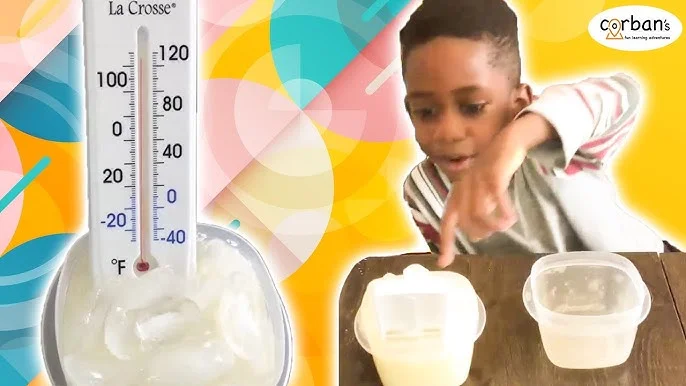
Exploring different water temperatures is a sensory play activity that involves exposing children to water of varying temperatures, such as warm, cold, or even hot water. This activity engages their sense of touch and temperature perception. Here’s how exploring different water temperatures can be a sensory play experience for kids: |
Benefits of Exploring Different Water Temperatures
| Cognitive Skills | Temperature discrimination | Body Experiment | Feel and Sense | Experimentation and Curiosity |
|---|
3. Nature Exploration
Nature Walks
Nature walks are outdoor excursions that involve exploring natural environments such as parks, forests, gardens, or any area with natural elements. These walls provide a multisensory experience for kids, engaging their senses in various ways. Here’s how nature walks can be a sensory play experience for children: |
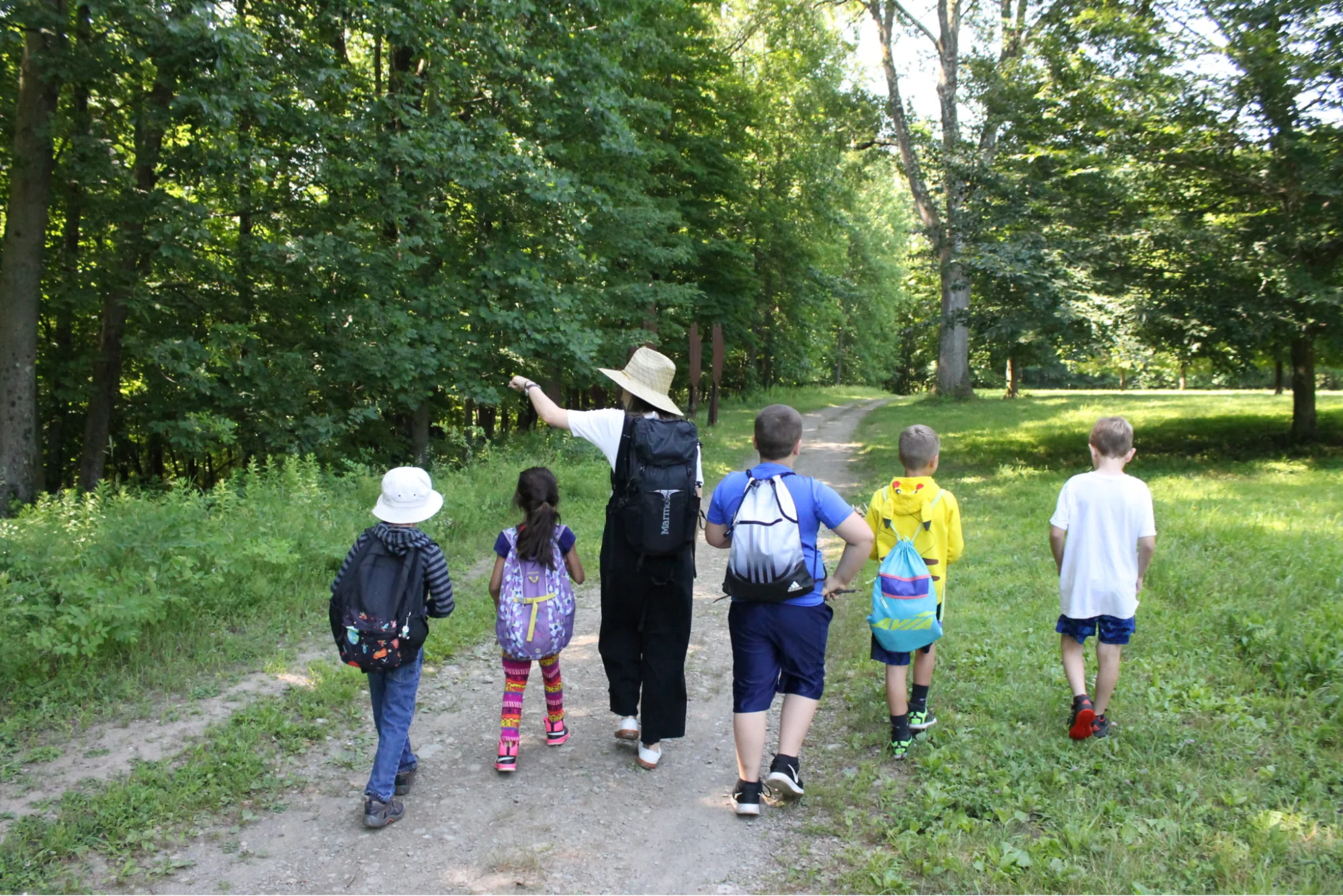
Benefits of Nature Walk
| Smell and Aroma | Seasonal Awareness | Observation | Feel and Sense | Emotional Connection |
|---|
Collecting Leaves, Rocks, and Flowers
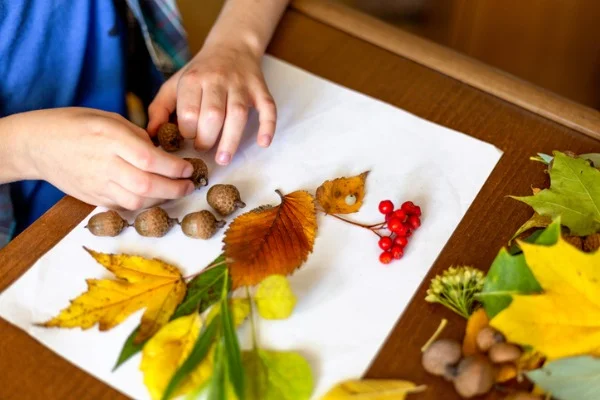
Collecting leaves, rocks, and flowers is a hands-on, sensory-rich activity for kids that involves exploring the outdoors. Gathering natural objects engages multiple senses and provides various developmental benefits: |
Benefits of Collecting Leaves, Rocks, and Flowers
| Categorize and sort | Nature Connection | Observation | Feel and Sense | Emotional Connection |
|---|
4. Textured Play
Sensory Bins with Various Materials
Sensory bins are containers filled with a variety of materials designed to stimulate a child’s senses. These bins typically include a mix of textures, colors, and materials like rice, beans, and sand, providing a hands-on and engaging sensory play experience. Creating sensory bins with various materials offers several benefits for children. |
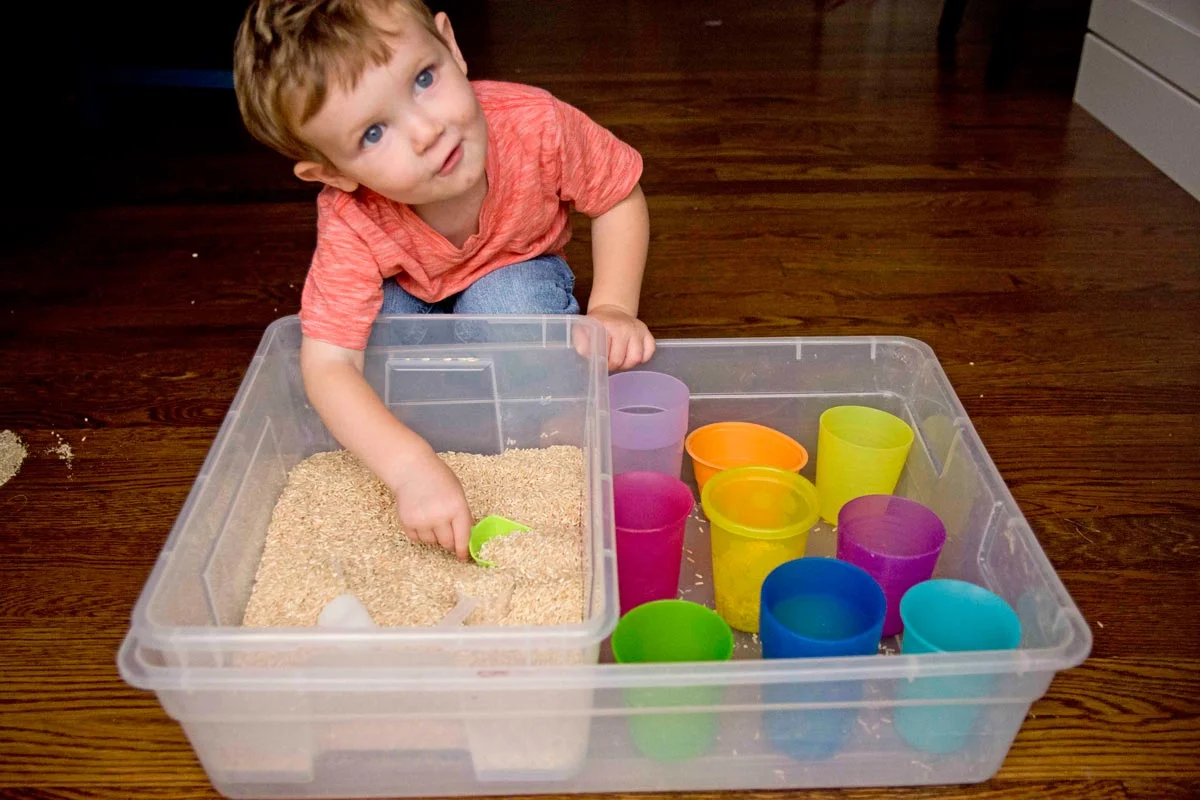
Benefits of Sensory Bins with Various Materials
| Categorize and sort | Motor Skills | Observation | Feel and Sense | Calming and Focussing |
|---|
Fabric and Texture Boards
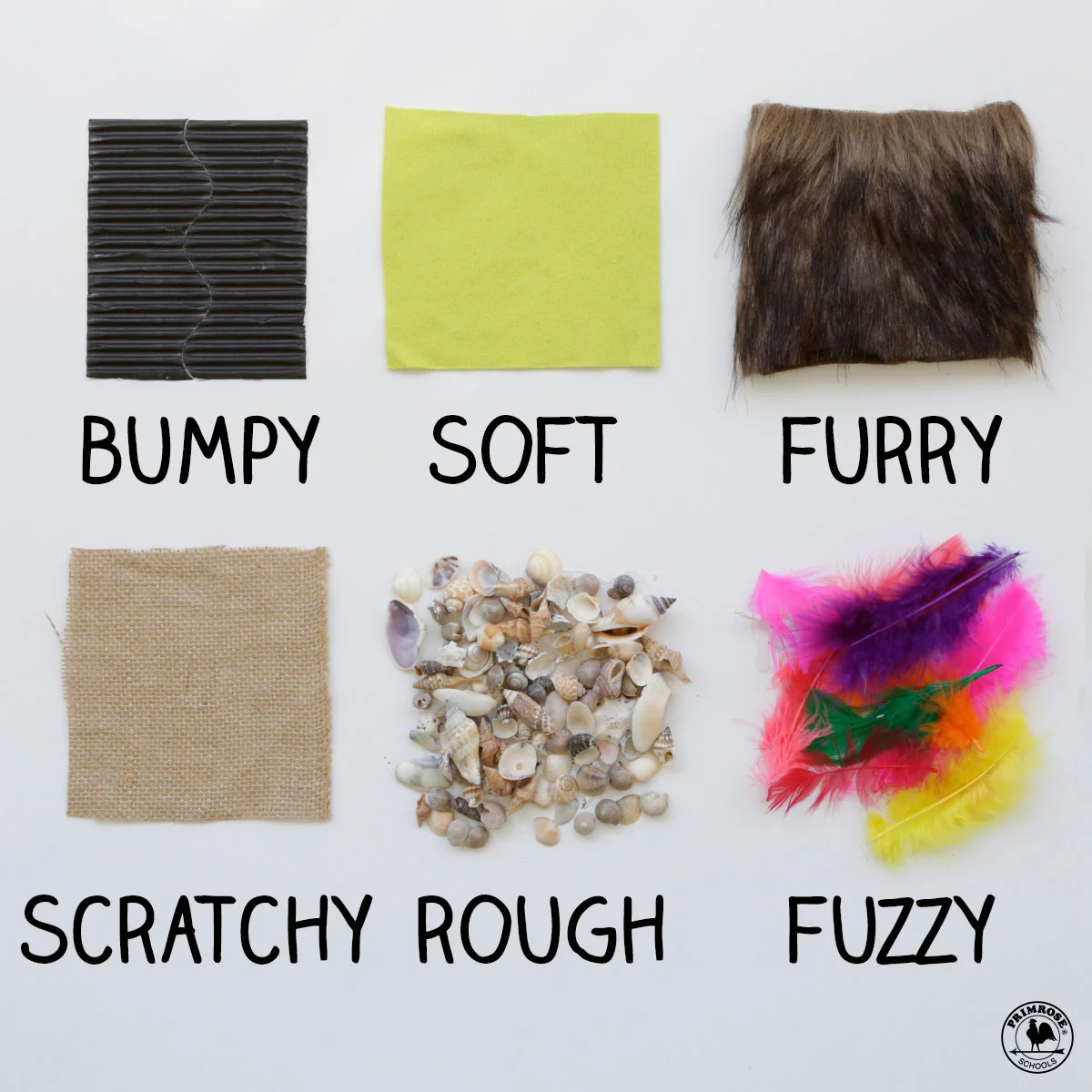
These sensory play activities are designed to provide children with a hands-on experience of exploring different textiles and materials. These boards typically consist of various fabrics and textures (say smooth or Rough) attached to a board or a sturdy surface. The goal is to engage the sense of touch and promote sensory exploration. |
Benefits of Fabric and Texture Boards Materials
| Texture Differentiation | Touch and Feel | Observation | Cognitive Skills | Adaptability |
|---|
5. Creative Art and Craft
Finger Painting
Finger painting is a sensory journey for kids, as their tiny hands dip into vibrant paint, feeling the cool or warm sensations and expressing creativity with every stroke. This tactile exploration enhances fine motor skills, hand-eye coordination, and overall dexterity. It’s more than creating art; it’s a colorful and enriching experience that fosters both sensory development and creative expression. |
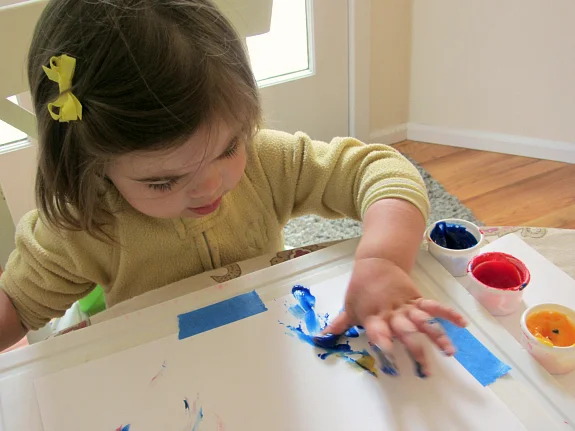
Benefits of Finger Painting
| Color Exploration | Touch and Feel | Observation | Creativity and Imagination | Messy but fun |
|---|
Making Birthday Cards
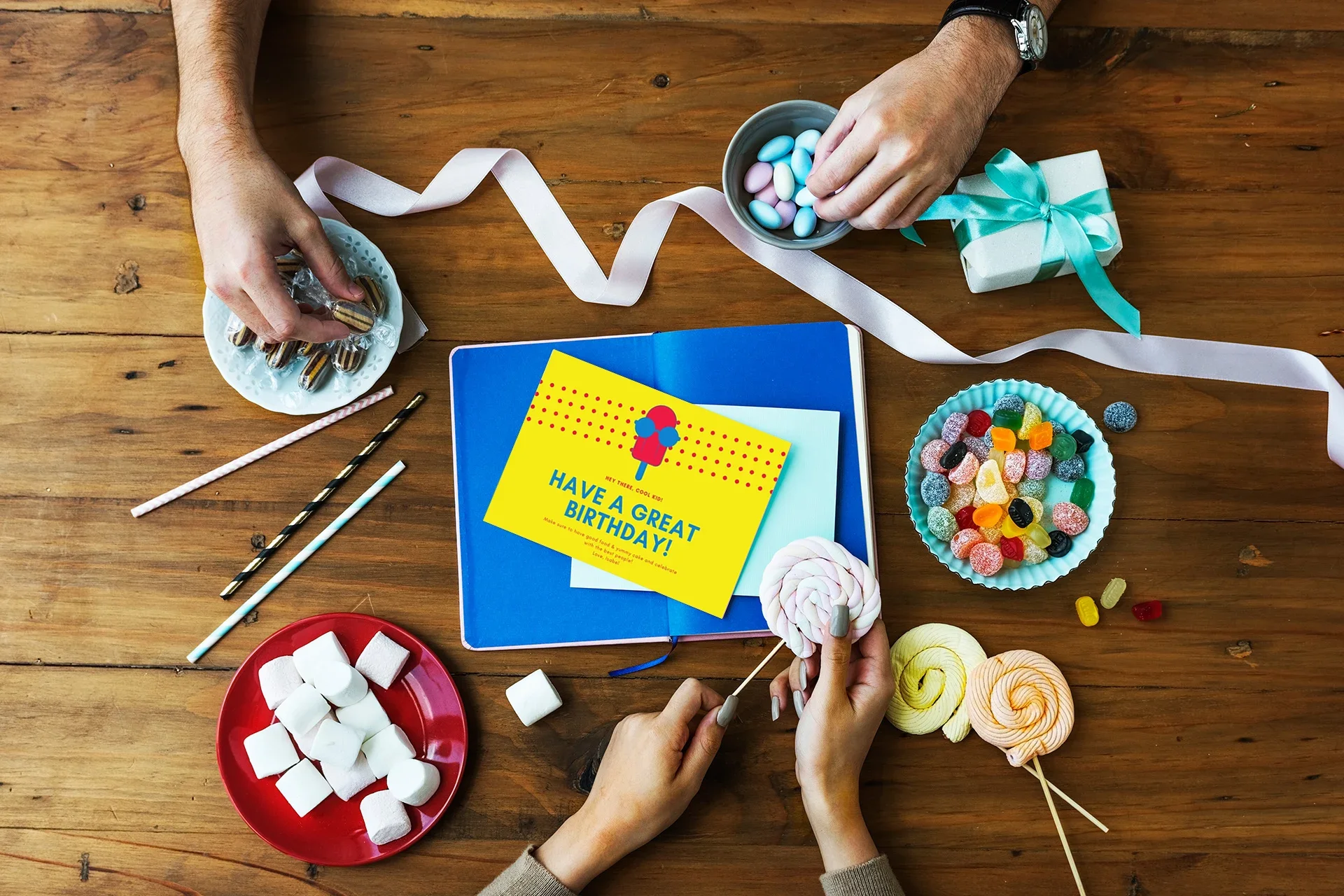
This is not just a time pass or play, it’s an emotion. Making birthday cards is a creative and sensory play activity for kids that involves crafting personalized greeting cards for friends or family members. It boosts their creativity and helps them feel a sense of belongingness or closeness to someone. |
Benefits of Making Birthday Cards
| Belongingness and connection | Personalization | Social Interaction | Creativity and Imagination | Emotional expression |
|---|
Learning Highlights
- Belongingness and Connection: Engaging in activities like making birthday cards and nature walks, fosters a sense of belonging and emotional connection through personalized gestures and shared exploration.
- Personalization: Through crafting and sensory play, personalized experiences by tailoring creations to individual preferences, enhancing the emotional value of the activity.
- Social Interaction: Collaborative activities such as categorizing, sorting, and sensory bins provide opportunities for social interaction and shared exploration.
- Creativity and Imagination: Various activities, from finger painting to nature walks, encourage creative expression and imaginative thinking in a playful and interactive manner.
- Emotional Expression: Activities like sensory bins and making birthday cards provide platforms for emotional expression through touch, color choices, and personalized messages.
- Sensory Exploration: Incorporating touch and feel elements in activities like fabric and texture boards, as well as nature walks, fosters tactile stimulation and enhances sensory exploration.
- Observation and Nature Connection: Nature walks, collecting leaves, rocks, and flowers, and other observation-based activities connect children to the environment, promoting awareness and a sense of wonder.
- Messy but Fun and Relaxation: Engaging in messy play activities like splashing in puddles or finger painting provides a fun and liberating experience while promoting creativity, relaxation, and stress relief.
- Cognitive Skills and Adaptability: Sorting, categorizing, and temperature discrimination activities contribute to the development of cognitive skills, problem-solving, and adaptability.
- Scientific Exploration and Motor Skills: Messy and safe play, as well as temperature discrimination activities, encourage scientific curiosity and exploration while enhancing motor skills through hands-on engagement.
Conclusion
As parents, caregivers, and educators, understanding the significance of physical development in children is paramount. Beyond the joyous moments of witnessing a first step or a successful climb, recognizing the interconnectedness of physical, cognitive, and emotional well-being is key. By providing a rich environment that encourages movement, exploration, and play, we lay the groundwork for resilient, healthy, and well-rounded individuals. So, let’s celebrate the little triumphs in physical development, knowing that each step, hop, or jump contributes to a child’s holistic growth.
Moonpreneur is on a mission to disrupt traditional education and future-proof the next generation with holistic learning solutions. Its Innovator Program is building tomorrow’s workforce by training students in AI/ML, Robotics, Coding, IoT, and Apps, enabling entrepreneurship through experiential learning.

























